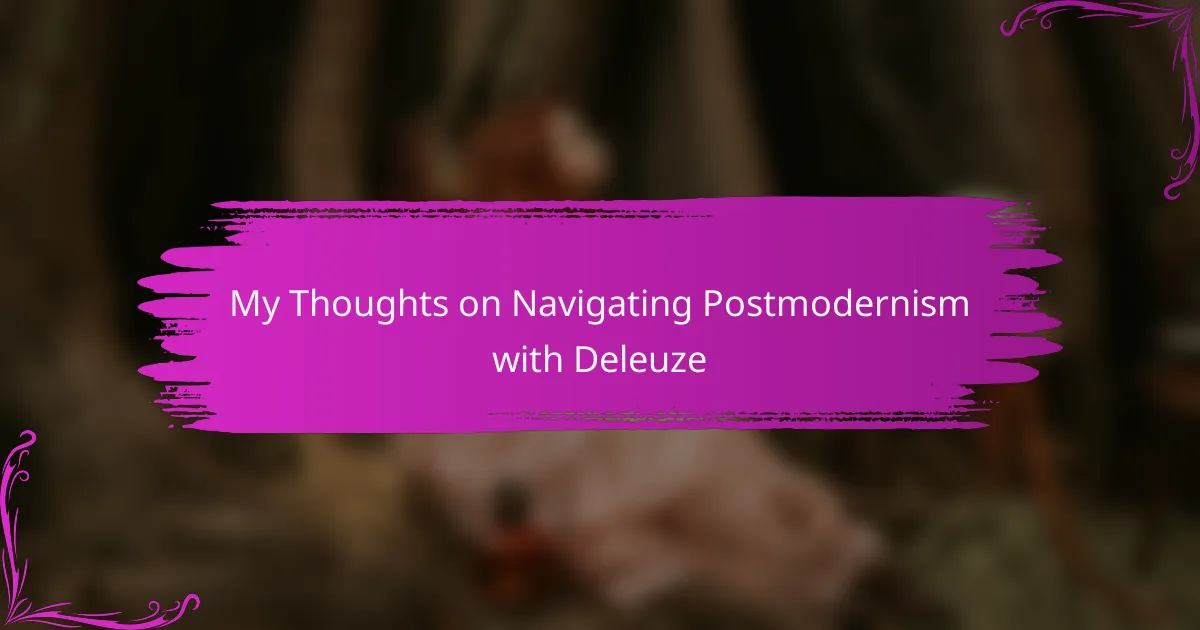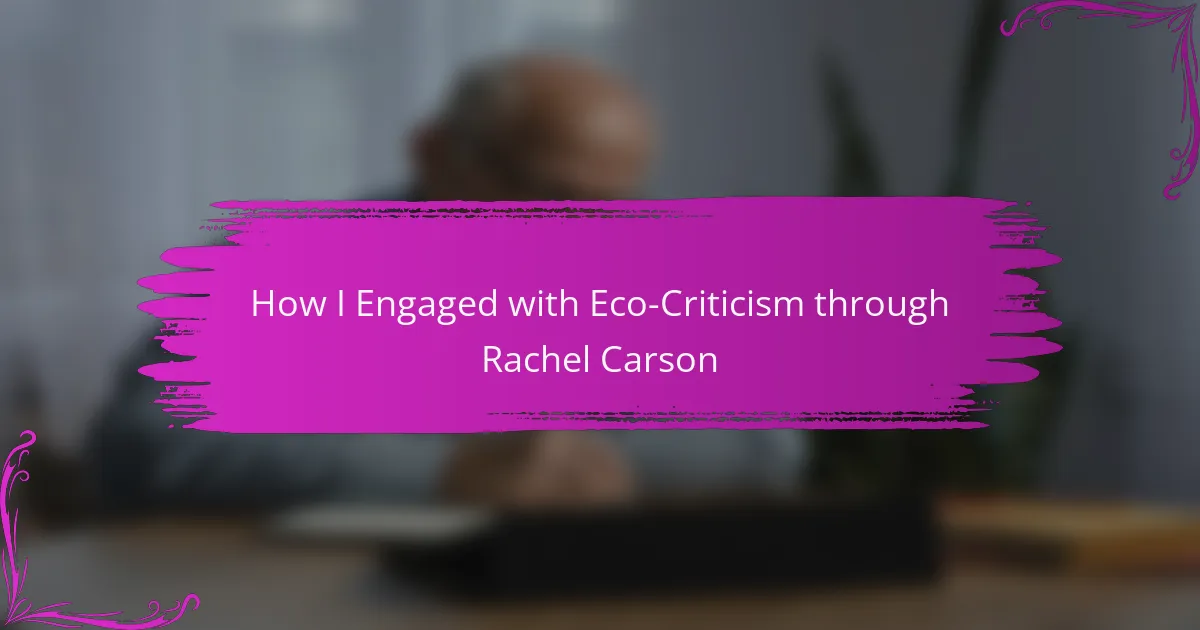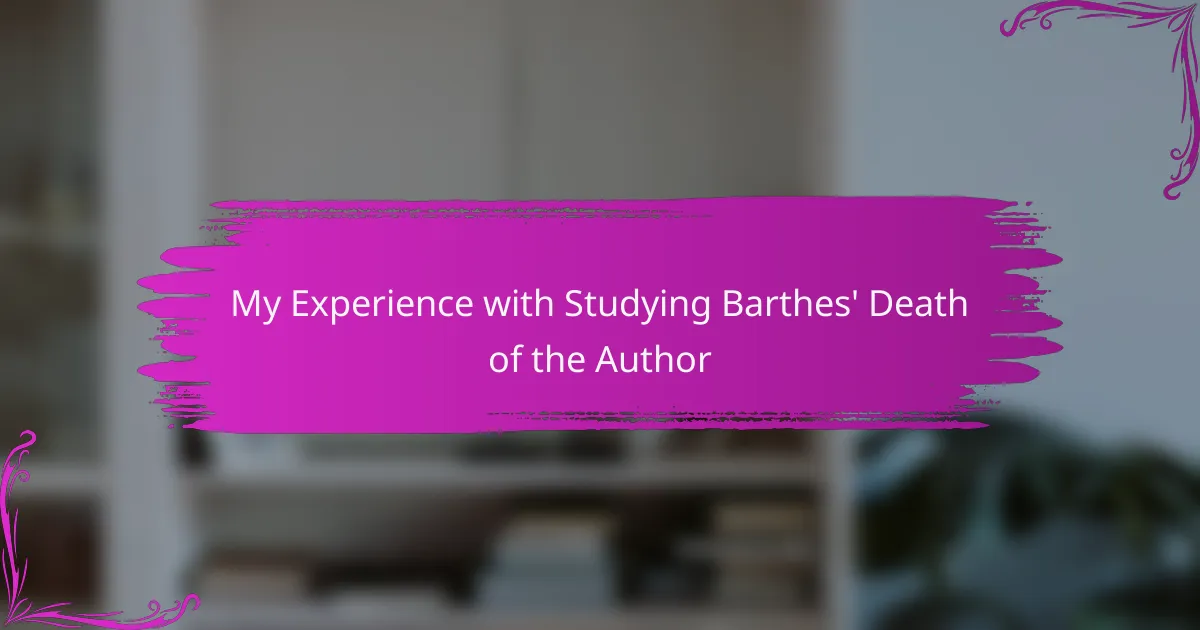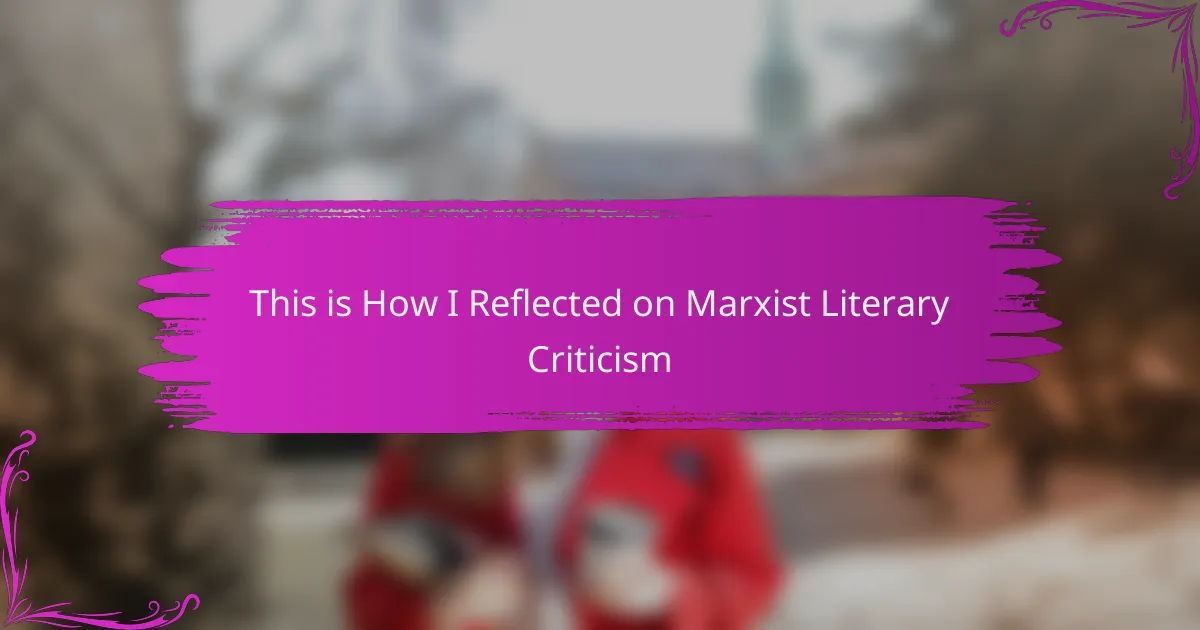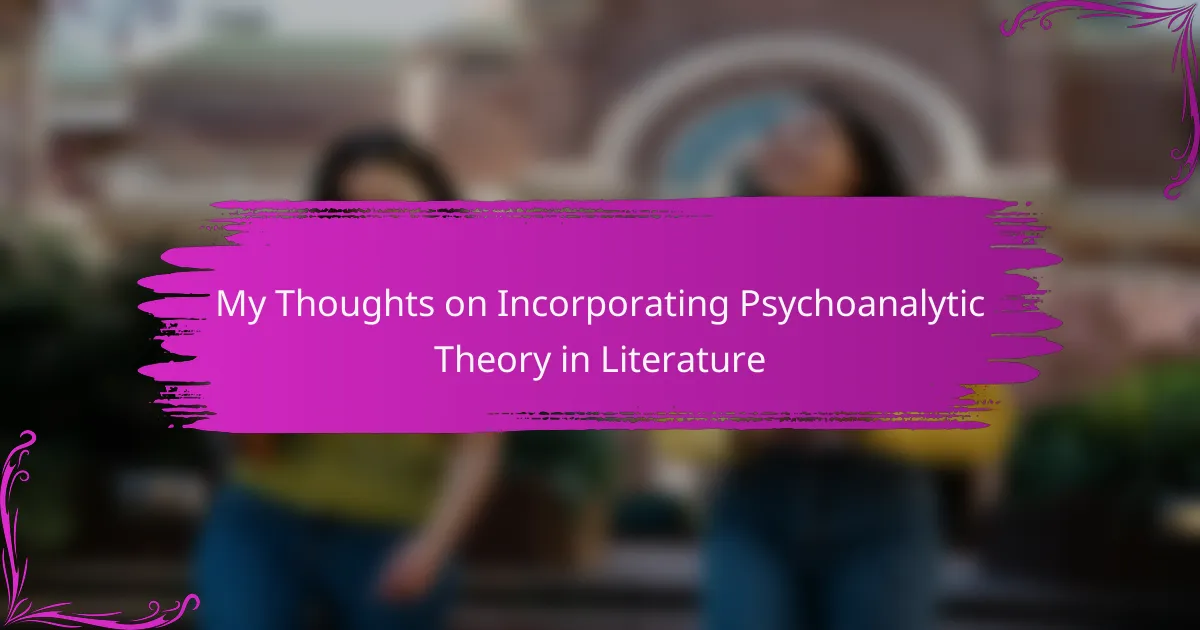Key takeaways
- Postmodernism emphasizes relativism, celebrating subjective interpretations and diverse viewpoints in literature.
- Deleuze’s concepts of rhizome and difference highlight the interconnectedness of knowledge and the uniqueness of experiences.
- Postmodern literature challenges traditional narrative structures, encouraging fragmentation and intertextuality to reflect societal complexities.
- In education, applying Deleuzean principles fosters critical thinking and deeper engagement through diverse perspectives and creative projects.
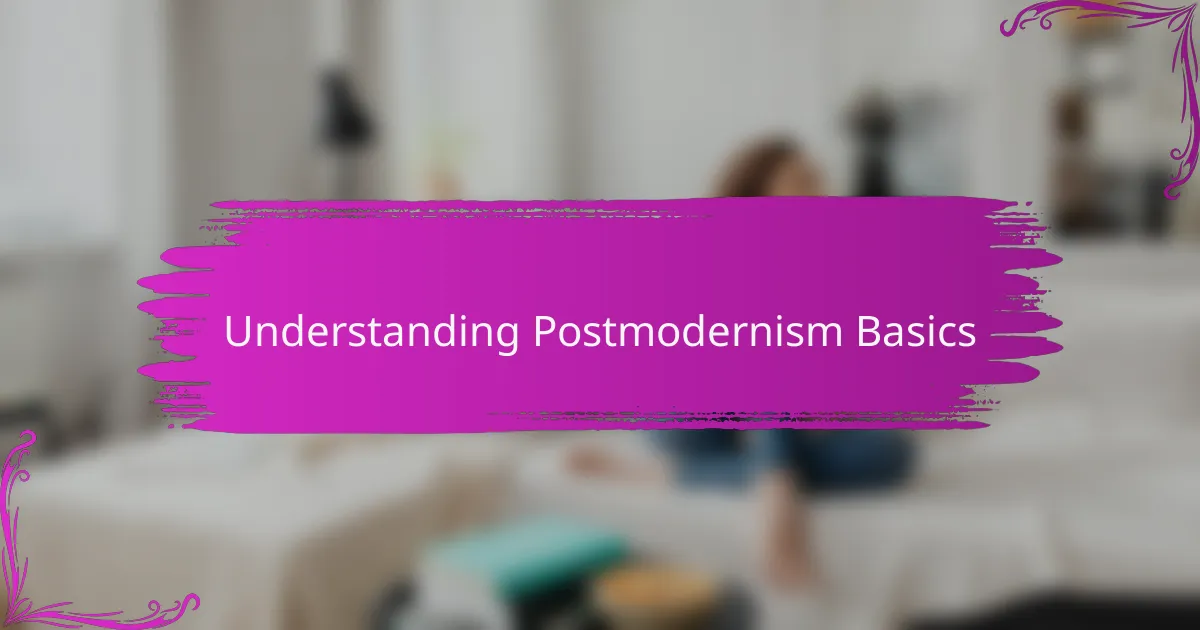
Understanding Postmodernism Basics
Postmodernism can seem like a haze of contradictions, can’t it? At its core, it’s an era that challenges established narratives and norms, encouraging a playful yet critical approach to reality. I remember the first time I encountered postmodern literature; it felt liberating to break free from traditional storytelling methods.
One of the basic tenets of postmodernism is the idea of relativism—the belief that truth is subjective and context-dependent. This is such a refreshing perspective when you think about it. It means that our interpretation of a text can be as unique as our life experiences. Have you ever read something that resonated with you in a way that was completely different from a friend’s interpretation? That’s the beauty of postmodernism; it celebrates those diverse viewpoints.
Another vital aspect is the fragmentation of identity and culture. I often reflect on how postmodernism mirrors the complexity of our own lives in today’s world, where identities are multifaceted and often intersect. It prompts me to ask, how can we embrace this complexity in our readings and writings? Understanding these basics is the first step towards diving deeper into postmodern texts and their rich layers of meaning.
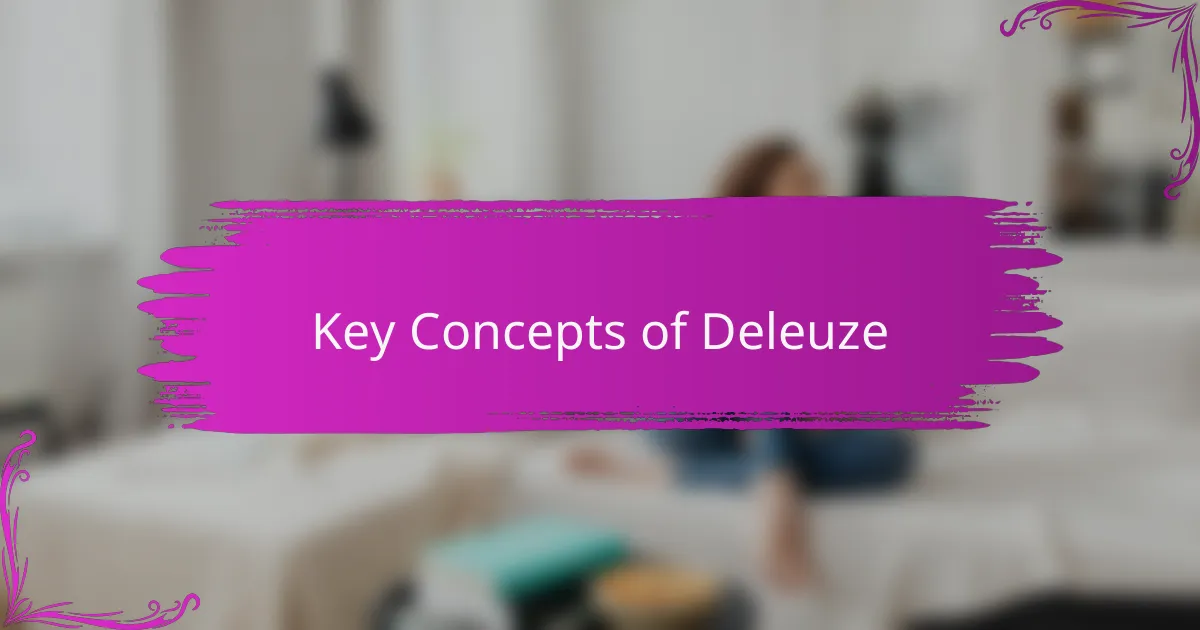
Key Concepts of Deleuze
Deleuze’s philosophy is rich with concepts that challenge traditional frameworks. For me, one key idea is the concept of “rhizome,” which represents knowledge as a non-hierarchical and interconnected web, rather than a tree with rigid branches. This notion resonates with my own experiences in learning; I’ve often found that understanding emerges from diverse connections rather than linear paths.
Another fundamental concept is “difference and repetition.” I find this particularly enlightening because it emphasizes how each experience is unique, yet connected by shared patterns. Reflecting on my interactions with literature, I often see how a repeated theme feels fresh and transformative in different contexts. Deleuze inspires us to embrace these differences, inviting us to explore the nuances that shape our understanding.
Here’s a simple comparison table to highlight these key concepts:
| Concept | Description |
|---|---|
| Rhizome | A model of knowledge as a non-hierarchical and interconnected network. |
| Difference and Repetition | The idea that each experience is unique while sharing underlying patterns. |
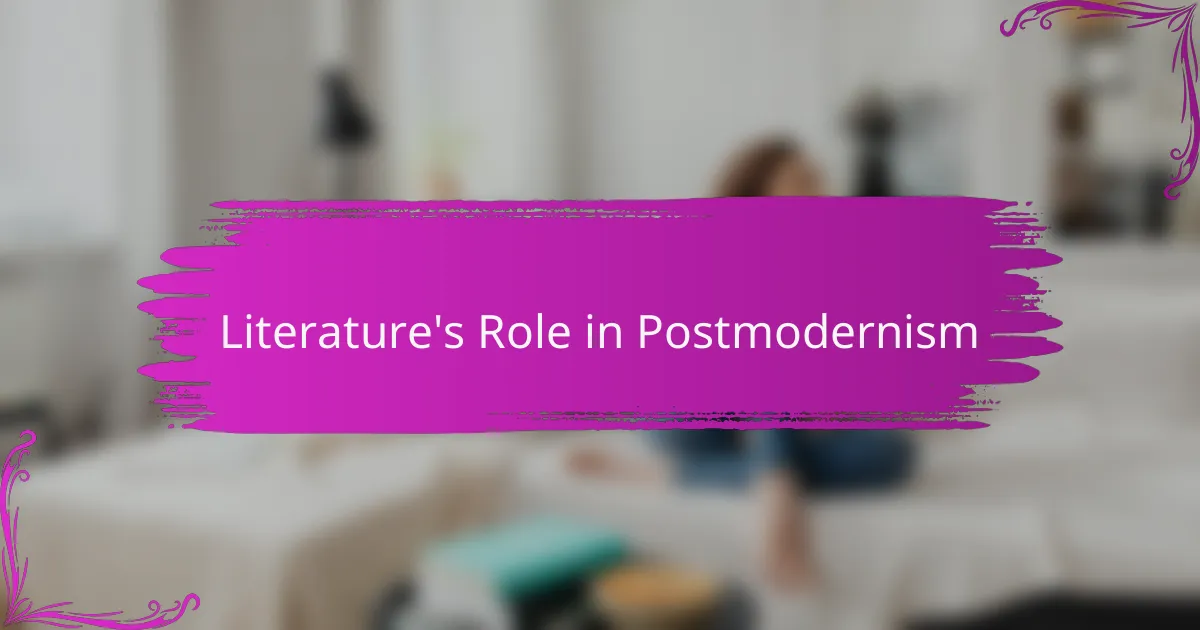
Literature’s Role in Postmodernism
Literature plays a significant role in postmodernism, acting as both a mirror and a lens through which we can view the complexities of contemporary society. I find it intriguing how postmodern texts often reject traditional narrative structures, embracing fragmentation and intertextuality instead. For instance, when I delved into works like Thomas Pynchon’s “Gravity’s Rainbow,” I felt a sense of disorientation, yet a thrilling adventure in the chaos of its non-linear storytelling.
Moreover, literature challenges our perceptions and encourages critical thinking. Through the lens of postmodernism, I have come to appreciate authors who break down the barriers between high and low culture, presenting diverse voices and experiences. The idea that meaning is subjective resonates with me personally, as I have often found different interpretations of the same text depending on my mood and life experiences.
| Key Aspect | Details |
|---|---|
| Narrative Structure | Postmodern works often utilize non-linear storytelling and fragmentation. |
| Intertextuality | These texts reference and incorporate other works, blurring the lines between original and derivative. |
| Cultural Commentary | Postmodern literature frequently critiques societal norms and questions established truths. |
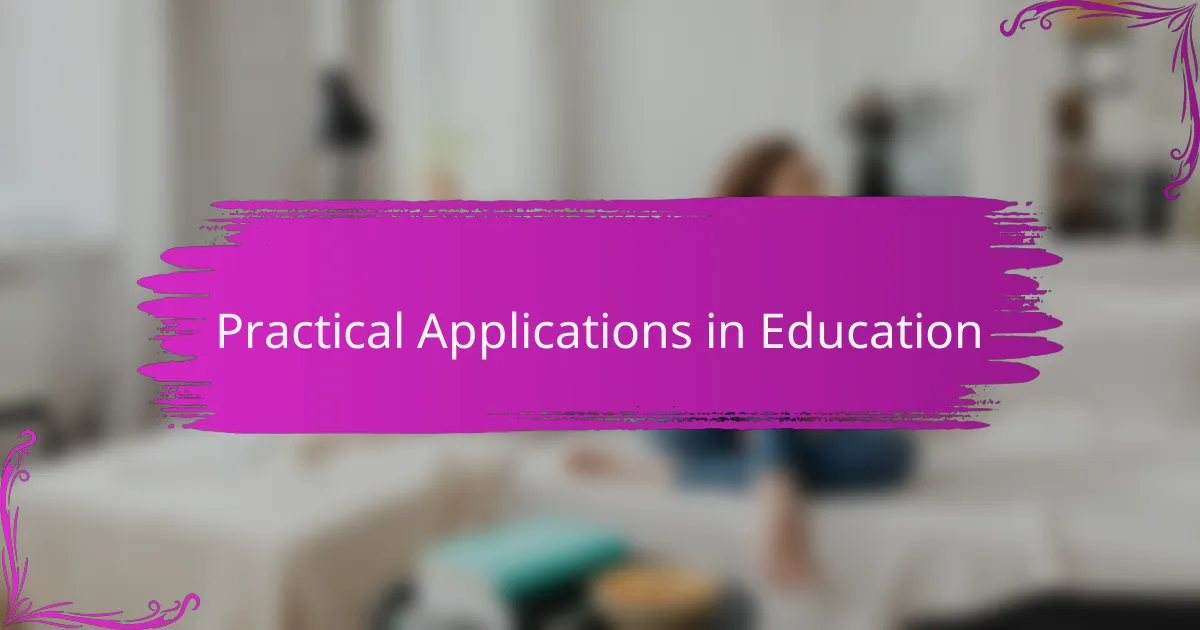
Practical Applications in Education
When I think about applying Deleuze’s ideas in education, it’s clear that his concepts of multiplicity and rhizomatic thinking can enrich our teaching methods. For instance, I’ve seen firsthand how encouraging students to explore diverse perspectives in literature fosters deeper understanding and critical thinking. Instead of following a linear path of interpretation, students can branch out like a rhizome, connecting ideas in unexpected ways that resonate with their experiences.
In practice, teachers can implement Deleuzean principles through various engaging activities such as:
- Facilitating group discussions that promote multiple viewpoints on a text.
- Using mind-mapping techniques to allow students to visually connect themes and ideas.
- Incorporating creative projects that encourage students to reinterpret literary works in their own unique styles.
- Encouraging reflective writing where students can explore their personal relationships with the material.
- Designing interdisciplinary projects that integrate literature with other subjects, amplifying organic connections.
By embracing such strategies, I’ve witnessed students not only engage more deeply with the material but also build their confidence in exploring and articulating complex ideas.
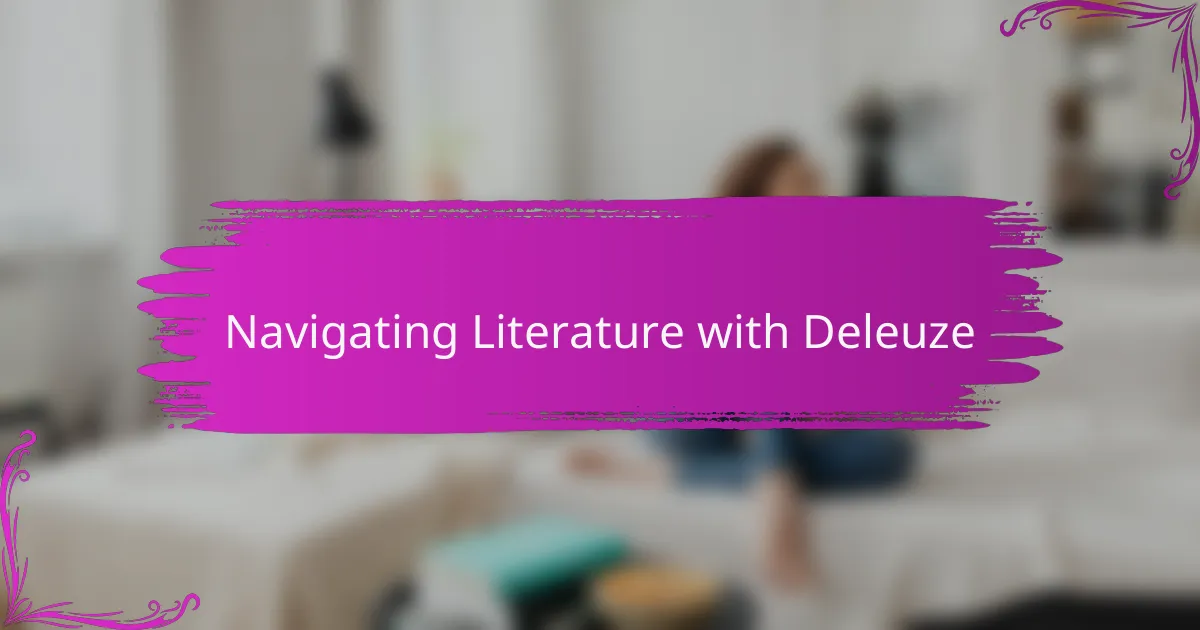
Navigating Literature with Deleuze
Navigating literature through the lens of Deleuze opens up a vibrant landscape, inviting us to see beyond traditional narratives. I remember a particular discussion in my literature class where we dissected a novel, uncovering layers of meaning by linking Deleuze’s concepts of rhizomes and multiplicity. The experience felt transformative as it revealed how stories can branch out in unexpected directions, much like life itself.
Engaging with Deleuze encourages us to question fixed interpretations and redefine our understanding of characters and plots. That moment when a student suddenly perceives a character’s journey as a non-linear evolution, rather than a straightforward arc, is truly exhilarating. It’s these revelations that not only breathe life into literature but also connect deeply with our own experiences of growth and change.
- Deleuze’s rhizomatic thinking promotes interconnectedness in narratives.
- Non-linear narratives reflect the complexities of real-life experiences.
- Characters can be perceived as shifts within a network of possibilities.
- Multiple interpretations are welcome, enriching personal engagement with texts.
- Deleuze invites us to explore literature as a living, breathing entity rather than a static object.
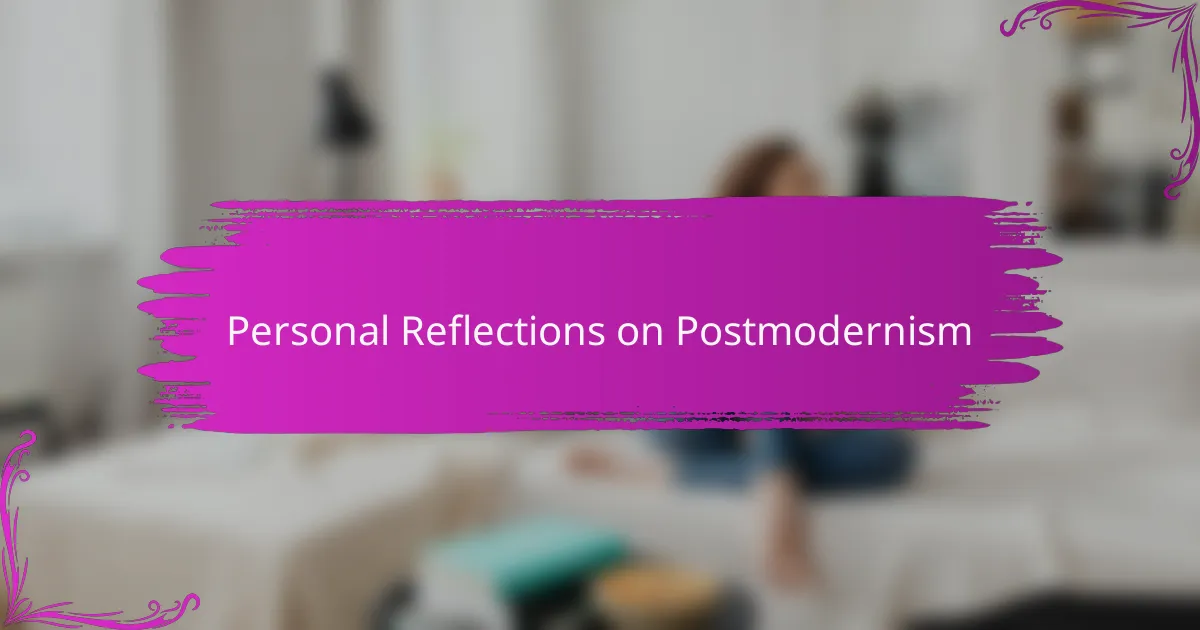
Personal Reflections on Postmodernism
Reflecting on postmodernism often brings me face-to-face with my own journey as a reader. I remember grappling with the fragmented structure of a novel and feeling lost—yet oddly exhilarated. It made me realize that the chaos in these texts mirrors the complexities of life itself, where we often weave together disparate experiences to form our unique narratives.
One striking aspect for me is how postmodernism challenges authority, particularly in literature. I once encountered a book that reframed historical events through the lens of various characters, each offering a different version of the truth. It made me ponder: whose story gets told, and why? This questioning is vital, as it urges us to reconsider what we accept as “fact” and encourages a more inclusive view of literature.
Emotionally, I am often drawn to the playful nature of postmodernism. The humor and irony found in texts can be disarming yet enlightening. In reading a decidedly unconventional piece, I sometimes laugh out loud, only to later discover deeper social critiques embedded within the humor. This duality resonates with me, proving that literature can be both entertaining and profoundly thought-provoking.
